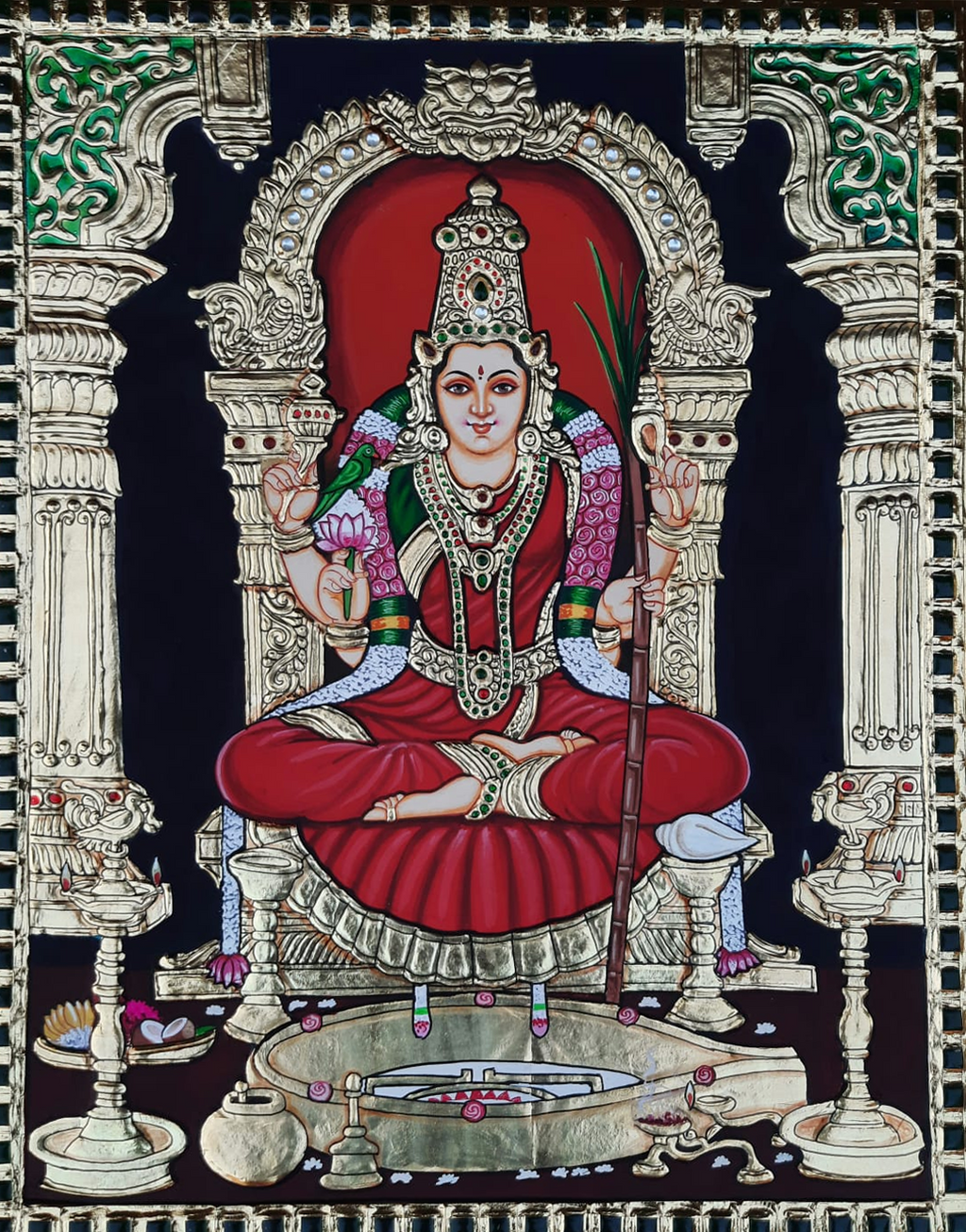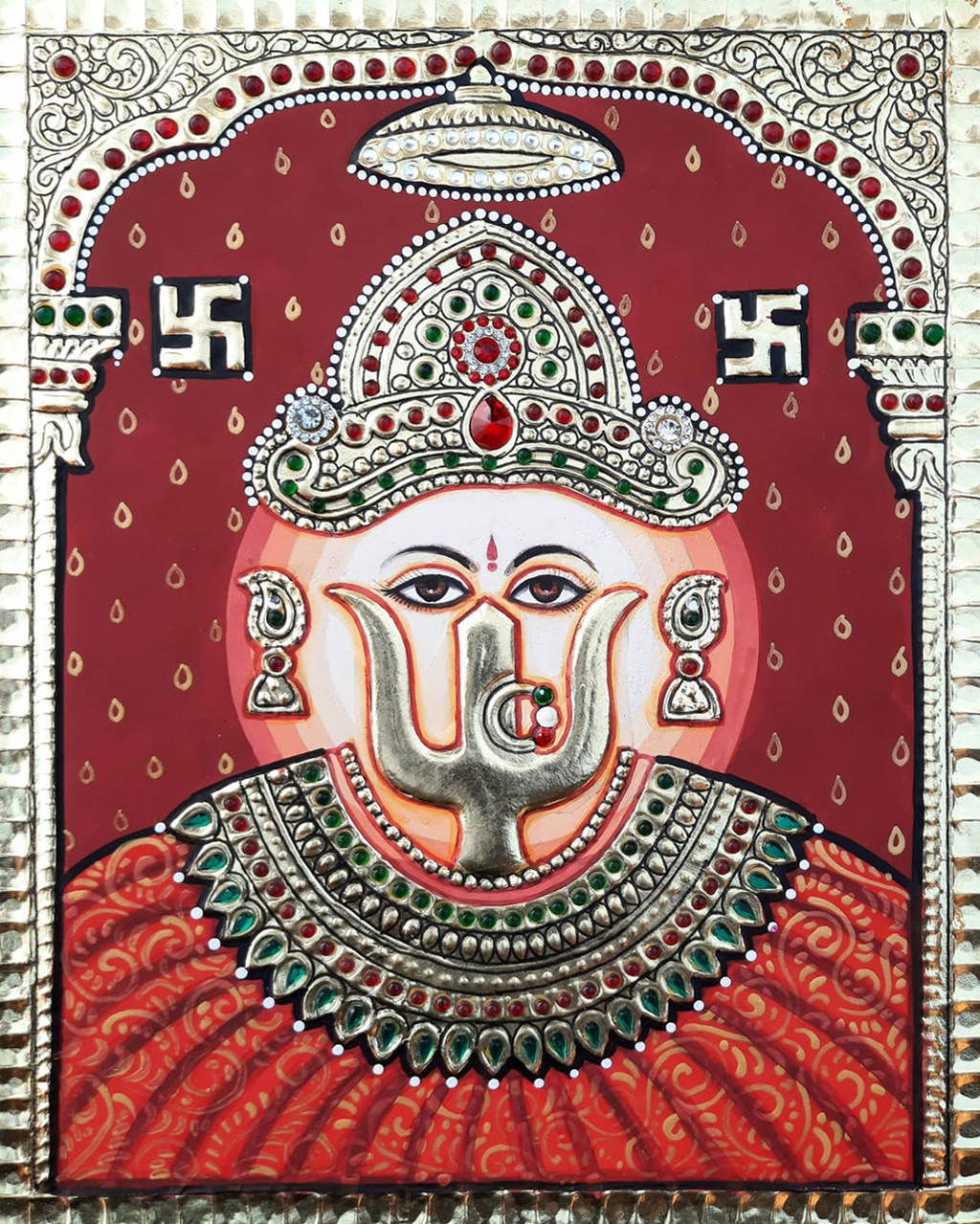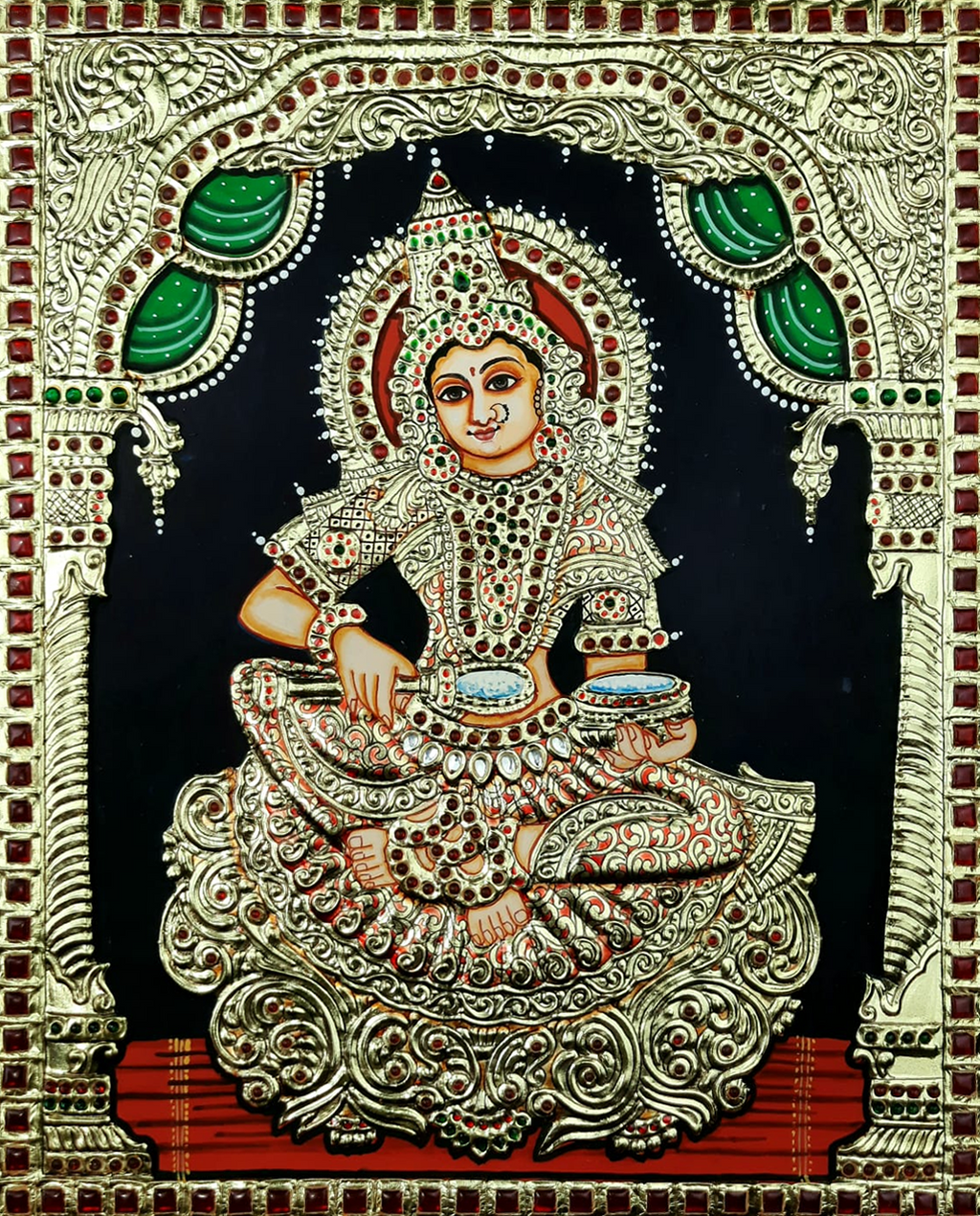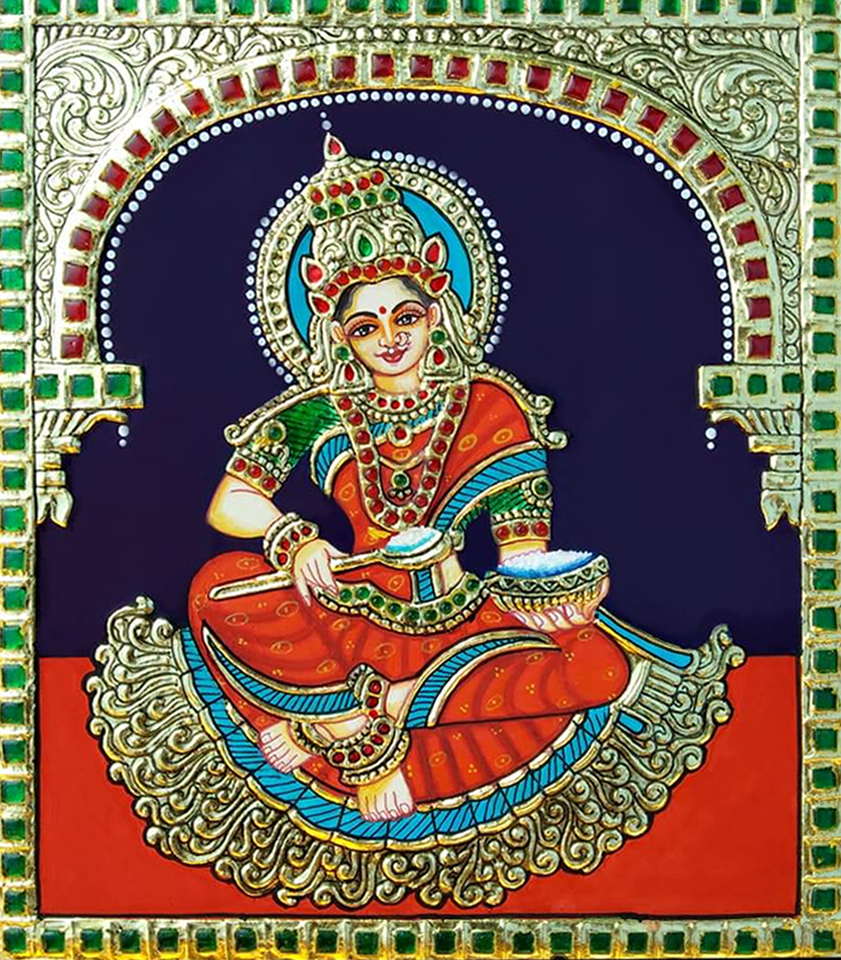EMI available: Pay in installments with your preferred Credit/Debit cards.
Dimensions : H- 12 in | W- 10 in

- HANDMADE
ARTWORKS

- INTERNATIONAL
SHIPPING

- AUTHENTIC &
SUSTAINABLE

- SECURE
CHECKOUT

- WARRANTY

- CELEBRATE
ARTISANS
![]() Earn upto 15,000 Points on purchase of this product.
Earn upto 15,000 Points on purchase of this product.
![]() Get upto 10% OFF on Live Workshops when sign up for 2 or more workshops.
Get upto 10% OFF on Live Workshops when sign up for 2 or more workshops.
![]() Get 10% OFF coupon code for Art Kits signing up for Masterclass or Live Workshop.
Get 10% OFF coupon code for Art Kits signing up for Masterclass or Live Workshop.
About the Artwork +
This exquisite Tanjore painting by the artist Baaya captures the divine trio of Lord Krishna, Bhama, and Rukmani in a vibrant and opulent composition. Centered prominently is Lord Krishna, adorned with intricate gold jewelry and a bright yellow dhoti, playing his flute with a serene expression. His face, embellished with a graceful smile, radiates a sense of joy and divinity. Krishna’s form is accentuated by delicate ornamentation, showcasing the rich tradition of Tanjore art, known for its use of vivid colors and gold foiling. On either side, Bhama and Rukmani stand with reverence and devotion, elegantly dressed in traditional attire, and adorned with pearls and gold ornaments that shimmer against the deep blue background.
Below, a pair of small white cows nuzzle Krishna’s feet, enhancing the pastoral and serene atmosphere, while the lush green canopy of trees arches above, symbolizing the sacred groves of Vrindavan. The intricate gold detailing in the background, combined with the striking use of primary colors, creates a sense of depth and richness, making each figure stand out vividly. The painting is framed within a traditional wooden border, designed with pointed carvings, adding to its regal appeal. This Tanjore artwork beautifully blends devotional themes with intricate craftsmanship, reflecting the grandeur and spiritual elegance of classical Indian art.
Size and price mentioned is including frame.
Authentication +
Each of our artworks are hand painted by master artists across India. We provide a digital authentication certificate with this artwork signed by the artist which will be sent over email after 3-4 days of delivery of the artwork.
Sizes, Framing and Customisation +
The sizes mentioned are excluding the borders of the artwork.
Frames shown are for visual representation only and are not included with the artwork. We offer framing services on demand at additional costs. If you wish to get your artwork framed, please reach out to us on WhatsApp or email.
We take custom artwork orders, please use the WhatsApp chat below or email us at wecare@memeraki.com to discuss your requirements in more detail.
Shipping and Taxes +
We ship worldwide, Our Prices are inclusive of GST/Taxes in India. For international orders, any specific custom duties you may encounter in your home country during the delivery has to borne by the buyer.
For all artworks except Lippan and Terracotta, No additional charges are applicable for domestic deliveries. For international artwork orders shipping charges of 4000 INR* are applicable.
For Lippan and Terracotta Artworks, We charge a Shipping rate on a per Kilogram basis.
*Extra charges may apply for both domestic and international deliveries in the following cases:
- International artwork orders where the artwork's smaller side measures more than 36 inches.
- Extra charges are applicable for Express Shipping. Contact support to check availability for your order.
- Orders with more than 2 product types in the cart.
Delivery Timelines and Returns +
All artworks are packed and couriered securely in a tube.
Ready To Ship/ In Stock artworks are shipped in under 2 weeks. We only accept return requests for Ready to Ship/ In stock artworks placed within a week from date of delivery. However, no returns can be accepted for international deliveries.
Made To Order artworks will take 2-3 weeks to be made and shipped once they are ready. Returns are not applicable on Made To Order artworks.
Once your order is placed, our team will stay in constant communication with the artist to track the progress and ensure the quality of your order. You will receive regular updates from us throughout this process.
Colour Disclaimer+
All artworks on the website are hand painted from scratch by our master artists. This makes every artwork absolutely unique and the actual colour and overall artwork may vary slightly from the artwork image posted here.




























